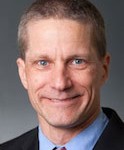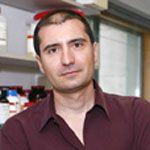Join us for the 30th Annual Neuroscience Day at Dartmouth College.
Date: MAY 14, 2016
Location: CLASS OF 1978 LIFE SCIENCES CENTER
Time: 8:30 AM - 5:00 PM
This day-long event highlights neuroscience research contributions at Dartmouth and features expert talks, a poster session, and a keynote lecture. Free and open to the public. Lunch will be provided.
Keynote Lecture
“Unraveling the basal ganglia”
Dr. Sabatini will present recent work from the laboratory on the development, structure, and function of the basal ganglia. This includes discovery of uncommon modes of neurotransmitter release, atypical circuitry not consistent with classic models of basal ganglia, and unexpected modes of interactions with cortex. Dr. Sabatini will attempt to place the work in the context of circuit dysfunction related to neuropsychiatric diseases with components of basal ganglia dysfunction.
About the Keynote
Bernardo Sabatini, PhD, MD, Alice and Rodman W. Moorhead III Professor of Neurobiology, Harvard Medical School; HHMI Investigator
Bernardo Sabatini obtained a PhD from the Department of Neurobiology and his MD degree from the Harvard/Massachusetts Institute of Technology Program in Health Sciences and Technology in 1999. Dr. Sabatini chose to not pursue further medical training, and instead began a postdoctoral fellowship in the laboratory of Dr. Karel Svoboda at Cold Spring Harbor Laboratory in New York. After his postdoctoral research, Dr. Sabatini joined the faculty in the Department of Neurobiology at Harvard Medical School in 2001. In 2008 Dr. Sabatini was named an investigator of the Howard Hughes Medical Institute and in 2010 was named the Takeda Professor of Neurobiology at Harvard Medical School. His laboratory seeks to uncover the mechanisms of synapse and circuit plasticity that permit new behaviors to be learned and refined. They are interested in the developmental changes that occur after birth that make learning possible, as well as in the circuit changes that are triggered by the process of learning. Lastly, they examine how perturbations of these processes contribute to human neuropsychiatric disorders such as Tuberous Sclerosis Complex and Parkinson’s disease.
In order to conduct their studies, Dr. Sabatini’s laboratory creates new optical and chemical methods to be able to observe and manipulate the biochemical signaling associated with synapse function. In 2014 Dr. Sabatini was elected to the American Academy of Arts and Sciences, and was also the recipient of the 2013-2014 A. Clifford Barger Excellence in Mentoring Award. He serves on a number of scientific advisory boards including the Simons Center for the Global Brain, the Max Planck Florida Institute, and others both domestically and abroad. Dr. Sabatini is currently the Alice and Rodman W. Moorhead III Professor of Neurobiology at HMS. He lives in Newton with his wife, who is a physician at MGH, and their 3 boys.
Neuroscience Day 2016 Faculty Speakers
 Catherine Stanger, PhD, Associate Professor of Psychiatry at Geisel School of Medicine at Dartmouth
Catherine Stanger, PhD, Associate Professor of Psychiatry at Geisel School of Medicine at Dartmouth
Title: "Neuroeconomics and Adolescent Health Behavior"
Abstract: Neuroeconomics integrates the behavioral methods of behavioral economics and other decision-making approaches with cognitive neuroscience paradigms. Choosing healthy and unhealthy behaviors involves a balance between reward network brain regions representing the reward value of the choice, and control networks associated with goal planning and executive control. Such dual system models have received support from imaging research, and from behavioral research on delay discounting where reward value for smaller, immediate benefits or gains is pitted against the use of cognitive control to obtain larger, delayed benefits or gains. During adolescence, when frontal control networks are still maturing, reward activity for unhealthy choices may more easily tip the balance and drive decision making. This presentation will provide a brief overview of this theoretical model, and describe our individual differences approach to identifying neural systems related to variability in delay discounting. It will also discuss delay discounting as a predictor of diverse adolescent clinical outcomes (substance use and medical adherence).
Bio: Dr. Catherine Stanger is an Associate Professor at the Geisel School of Medicine at Dartmouth. She received her PhD in Clinical Psychology from Rutgers University in 1990. She was a postdoctoral fellow and faculty member at the University of Vermont from 1989 to 2005, and then was an Associate Professor at the University of Arkansas for Medical Sciences until she moved to Dartmouth in 2012. Over the last 20 years, in collaboration with Dr. Budney, she has conducted extensive research on the development and evaluation of innovative family based interventions, specializing in parenting interventions for diverse populations including substance abusing parents, and adolescents with substance use problems. Her clinical research has focused on innovative ways to use incentives to motivate behavior change in both teens and parents, and she has collaborated with groups across the country to use her interventions. In addition, it has integrated research on decision making and brain processes into her work in order to understand risk factors and to improve treatment outcomes. Most recently, she has adapted her family based intervention to help teens with type 1 diabetes improve their metabolic control. Dr. Stanger's work has been funded by the National Institute on Drug Abuse, the National Institute on Alcohol Abuse and Alcoholism, and the National Institute on Child Health and Human Development.
 Erik J. Kobylarz, MD, PhD, Associate Professor of Neurology, Geisel School of Medicine; Adjunct Associate Professor of Engineering, Thayer School of Engineering at Dartmouth
Erik J. Kobylarz, MD, PhD, Associate Professor of Neurology, Geisel School of Medicine; Adjunct Associate Professor of Engineering, Thayer School of Engineering at Dartmouth
Bio: Erik J. Kobylarz, M.D., Ph.D. is an Associate Professor of Neurology at Geisel School of Medicine and Adjunct Associate Professor at the Thayer School of Engineering at Dartmouth College. He serves as Director of the Clinical Neurophysiology Fellowship Program, as well as Director of the Intraoperative Neurophysiologic Monitoring Service at Dartmouth-Hitchcock Medical Center. He received his bachelor of science degree in chemical engineering from Columbia University, then his medical degree from Dartmouth Medical School, as well as a doctorate in biomedical engineering from Dartmouth College. After completing an internship in internal medicine, he finished his residency in neurology, then a fellowship in neuro-ophthalmology at Walter Reed Army Medical Center. After serving in the U.S. Army Medical Corps achieving the rank of Lieutenant Colonel, he underwent further fellowship training in clinical neurophysiology, epilepsy and intraoperative neurophysiologic monitoring at New York Presbyterian Hospital-Weill Cornell Medical Center and Memorial Sloan-Kettering Cancer Center. His research interests involve the application of engineering methods (i.e., neurostimulation, signal processing, mathematical modeling, telecommunications, physiologic control systems theory and techniques) to the study of neurophysiologic, neuro-ophthalmologic, and neurologic problems, as well as the development of medical devices for the nervous system.
 Kyle S. Smith, PhD, Assistant Professor of Psychological and Brain Sciences, Dartmouth College
Kyle S. Smith, PhD, Assistant Professor of Psychological and Brain Sciences, Dartmouth College
Title: "How Value is Assigned to Reward Cues in the Accumbens-Pallidum Circuit"
Abstract: After repeated pairing of cues with rewards, the cues themselves can become attractive and meaningful. They acquire incentive salience, a process by which value is added directly on to the cues. This talk will describe studies that have used neural recordings, chemogenetics, and optogenetics to dissect out mechanisms for incentive salience in a circuit linking the nucleus accumbens to the ventral pallidum.
Bio: I received my B.A. from Indiana University in Psychology. My Ph.D. was in Biopsychology at the University of Michigan with Dr. Kent Berridge, and my postdoctoral research was conducted at M.I.T. with Dr. Ann Graybiel. I am now an Assistant Professor of Psychological and Brain Sciences at Dartmouth. Current work in my laboratory incorporates a variety of neuroscience research tools to address questions of reward and learning, such as: Where and how is pleasure and motivation generated in the brain? How are habits made and broken? What are the roles of habits and motivations in addiction?
 Farran Briggs, PhD, Assistant Professor of Physiology and Neurobiology, Geisel School of Medicine at Dartmouth
Farran Briggs, PhD, Assistant Professor of Physiology and Neurobiology, Geisel School of Medicine at Dartmouth
Title: "What does corticogeniculate feedback do for vision?"
Abstract: In the early visual system of mammals, information is relayed from the retina through the visual thalamus (LGN) to primary visual cortex (V1). The first feedback connection in the early visual pathway is the corticogeniculate circuit that links V1 with the LGN in the feedback direction. Corticogeniculate synapses onto LGN neurons are anatomically robust and far outnumber retinal synapses. However the physiological responses of LGN neurons mimic their retinal inputs and not their cortical inputs. A long-standing question in visual neuroscience has been: what is the role of corticogeniculate feedback in vision? I initially set out to understand whether corticogeniculate feedback is made up of homogeneous or heterogeneous sub-populations of neurons. I discovered that corticogeniculate neurons in primates are both physiologically and anatomically heterogeneous. Furthermore, I found that the physiology of the three main corticogeniculate neuron types matches the physiology of the three main feedforward parallel processing streams. Having discovered that corticogeniculate feedback is organized into parallel processing streams, I next set out to determine the influence of corticogeniculate feedback on LGN responses. We utilized virus-mediated gene delivery to optogenetically control the activity of corticogeniculate neurons in vivo. We found that corticogeniculate feedback does not alter the physiological tuning preferences of LGN neurons, but it strongly modulates the timing and precision of LGN responses to visual stimuli. Together, our results indicate that corticogeniculate feedback influences the timing and precision of LGN responses, perhaps to enhance the salience of relevant visual stimuli.
Bio: After graduating from Dartmouth College in 1997 with a B.A. in Biology, Dr. Briggs attended graduate school at the University of California, San Diego where she studied local cortical circuitry with Dr. Ed Callaway at the Salk Institute. She received her Ph.D. in Biology from UCSD in 2003. Dr. Briggs conducted her post-doctoral research at the University of California, Davis where she studied visual systems neurophysiology with Drs. Marty Usrey, Barbara Chapman, and Ron Mangun. In 2011, Dr. Briggs joined the faculty in the Physiology and Neurobiology Department of the Geisel School of Medicine as an Assistant Professor.
Schedule of Events
8:30am-8:50am: Coffee and Poster Set-up
8:50am-9:00am: Opening Remarks
9:00am-10:00am: Student and Post-Doc Talks, Part 1
10:00am-10:40am: Poster Session A
10:40am-11:20am: Poster Session B
11:20am-12:15pm: Faculty Talks, Part 1
12:15pm-1:30pm-Lunch
1:30pm-2:30pm: Student and Post-Doc Talks, Part 2
2:30pm-2:55pm: Coffee Break
2:55pm-3:50pm: Faculty Talks, Part 2
4:00pm-5:00pm: Keynote Lecture
